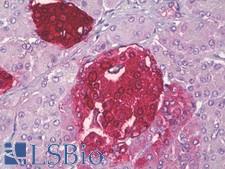Login
Registration enables users to use special features of this website, such as past
order histories, retained contact details for faster checkout, review submissions, and special promotions.
order histories, retained contact details for faster checkout, review submissions, and special promotions.
Forgot password?
Registration enables users to use special features of this website, such as past
order histories, retained contact details for faster checkout, review submissions, and special promotions.
order histories, retained contact details for faster checkout, review submissions, and special promotions.
Quick Order
Products
Antibodies
ELISA and Assay Kits
Research Areas
Infectious Disease
Resources
Purchasing
Reference Material
Contact Us
Location
Corporate Headquarters
Vector Laboratories, Inc.
6737 Mowry Ave
Newark, CA 94560
United States
Telephone Numbers
Customer Service: (800) 227-6666 / (650) 697-3600
Contact Us
Additional Contact Details
Login
Registration enables users to use special features of this website, such as past
order histories, retained contact details for faster checkout, review submissions, and special promotions.
order histories, retained contact details for faster checkout, review submissions, and special promotions.
Forgot password?
Registration enables users to use special features of this website, such as past
order histories, retained contact details for faster checkout, review submissions, and special promotions.
order histories, retained contact details for faster checkout, review submissions, and special promotions.
Quick Order
PathPlusTM SST / Somatostatin Antibodies
SST (growth hormone-inhibiting hormone, somatostatin, SMST) is an inhibitory cyclic peptide produced by somatostatinergic neurons in the brain and delta cells in pancreatic islets, the duodenum and the pyloric antrum of the stomach. SST functions to regulate the endocrine system, neurotransmission and cell proliferation by inhibiting neurotransmitter and hormone release upon binding to various SST receptors. Deregulated SST is associated with excitation/inhibition balance in various neurodegenerative and neuropsychiatric disorders. Cognitive deficits in Alzheimer’s disease correlate with a decrease in SST expression in the brain. A decrease in SST expression has also been reported in Parkinson’s disease, major depressive disorder and schizophrenia. Somatostatin release also correlates with seizures, and it is highly expressed in regions of the brain related to seizures. Finally, pretreatment with SST may help prevent dopaminergic neuronal degeneration in Parkinson’s disease. In immunohistochemistry of normal tissue, SST has secretory and extracellular positivity in the hypothalamus, adrenal medulla and cortex in the brain, in islets of Langerhans in the pancreas, and in gastrointestinal neuroendocrine cells.
References: PLoS One. 2019 May 28;14(5):e0217392, PMID: 31136617; Mol Med Rep. 2015 Jul;12(1):1002-8, PMID: 25777539; Front Endocrinol (Lausanne). 2012 Dec 6;3:154, PMID: 23230430;
2 PathPlusTM Antibodies


☰ Filters
Products
Antibodies
(2)
Type
Primary
(2)
Target
SST / Somatostatin
(2)
Reactivity
Human
(2)
Mouse
(2)
Rat
(2)
Application
IHC
(2)
IHC-Fr
(1)
IHC-P
(2)
WB
(2)
ICC
(1)
Peptide-ELISA
(1)
Host
rabbit
(2)
Product Group
PathPlus Cancer Pathology
(2)
PathPlus Neuro
(2)
Isotype
IgG
(1)
Clonality
polyclonal pc
(2)
Format
Unconjugated
(2)
Epitope
aa1-14
(1)
aa10-59
(1)
Publications
No
(2)

Neuroscience
Cancer Pathology
SST / Somatostatin Rabbit anti-Human Polyclonal (aa10-59) Antibody
Mouse, Rat, Human
IHC, IHC-P, Peptide-ELISA, WB
Unconjugated
50 µl/$460

Neuroscience
Cancer Pathology
SST / Somatostatin Rabbit anti-Human Polyclonal (aa1-14) Antibody
Mouse, Rat, Human
ICC, IHC, IHC-Fr, IHC-P, WB
Unconjugated
50 µg/$460
Viewing 1-2
of 2
product results










